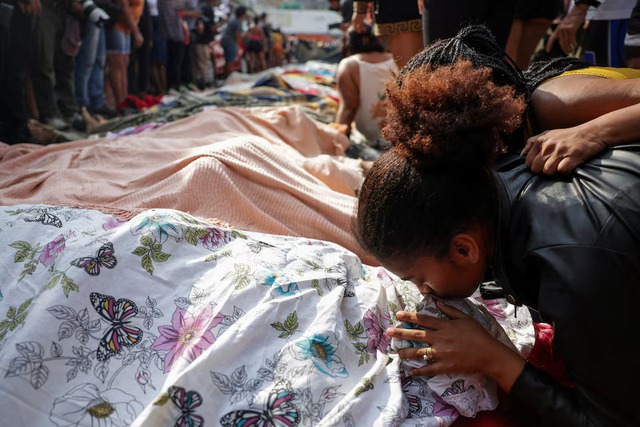
Warning Graphic Content: A mourner kisses a covered body, the day after a deadly police operation in Rio de Janeiro. Photo: Reuters
State police said the raids targeting a major drug gang had been planned exhaustively for more than two months, and were designed to drive suspects into a forested hillside where a special operations unit was waiting in ambush.
"The elevated lethality of the operation was expected but not desired," Victor Santos, head of security for Rio state, told a news conference. He also promised an investigation into any police "misconduct."
Rio police confirmed 121 deaths so far, including four officers. Public defenders said the final count would rise to at least 132.
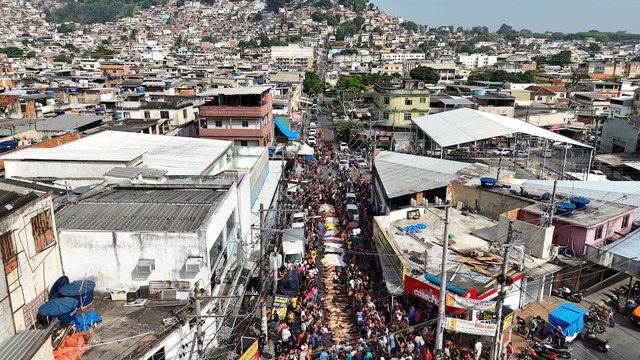
A drone views shows mourners gathering around bodies, the day after a deadly police operation against drug trafficking at the favela do Penha, in Rio de Janeiro, Brazil, October 29. Photo: Reuters
President Luiz Inacio Lula da Silva said the scourge of drug violence had to be confronted, calling for coordinated work that targets the gangs without putting police and innocent families at risk.
"We cannot accept that organized crime continues to destroy families, oppress residents, and spread drugs and violence throughout the cities," he said in a post on X.
Residents of the Penha neighborhood in Rio gathered dozens of corpses from the surrounding forest overnight and lined up more than 70 of the bodies in the middle of a main street.
"I just want to take my son out of here and bury him," said Taua Brito, a mother of one of those killed, surrounded by weeping mourners and onlookers on either side of the long row of bodies, some of which were covered with sheets or bags.
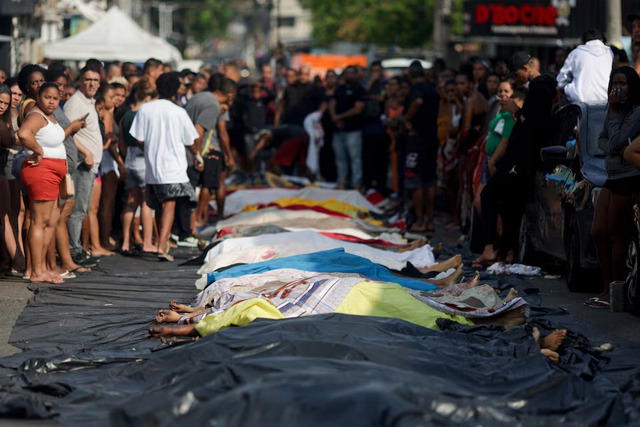
Mourners gather around bodies, the day after a deadly police operation against drug trafficking at the favela do Penha, in Rio de Janeiro, Brazil, October 29. Photo: Reuters
A motorcycle caravan set off from the neighborhood in the afternoon to protest the police violence outside the governor's palace, where demonstrators gathered waving Brazilian flags stained with red palm marks.
The city's most deadly police drug raid before Tuesday was in 2021, when 28 people were killed in the Jacarezinho neighborhood.
The latest raids were also Brazil's deadliest ever police operation. In 1992, 111 prisoners died when Sao Paulo police stormed the Carandiru Penitentiary to put down a rebellion.
UN urges investigation
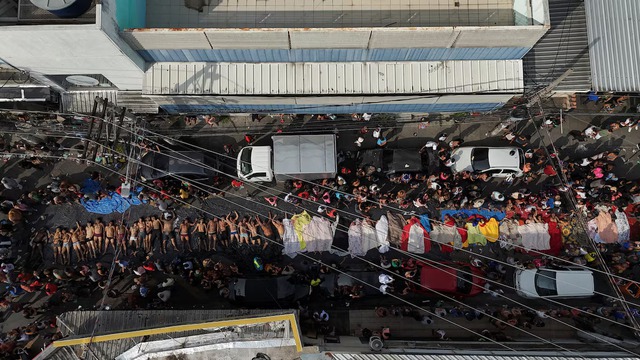
A drone views shows mourners gatherering around bodies, the day after a deadly police operation against drug trafficking at the favela do Penha, in Rio de Janeiro, Brazil, October 29. Photo: Reuters
UN officials and security experts criticized the heavy casualties of the military-style operation. The United Nations human rights office said the killings add to a trend of extremely lethal police raids in Brazil's marginalized communities.
"We remind authorities of their obligations under international human rights law, and urge prompt and effective investigations," the agency said in a statement.
Relatives of the fallen described evidence of summary executions, including bound limbs, knife wounds and gunshots to the face and neck.
"Several families reported signs of torture on the victims' bodies," said Guilherme Pimentel, a human rights lawyer working with families of the deceased at Rio's police morgue.
Santos, Rio state's security secretary, said: "Any misconduct that may have occurred, which I believe did not happen, will be investigated."
He said there was no connection between the violence and the global events Rio will host next week related to the United Nations COP30 climate negotiations, including the C40 summit of mayors addressing global warming and Prince William's Earthshot Prize.
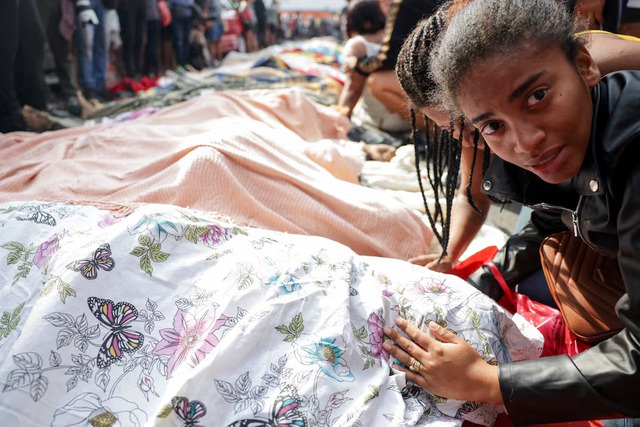
A mourner leans over a body, the day after a deadly police operation against drug trafficking at the favela do Penha, in Rio de Janeiro, Brazil, October 29. Photo: Reuters
Rio Governor Claudio Castro said he was certain those killed in the operation were criminals firing guns from the forest.
"I don't think anyone would be walking in the forest on the day of the conflict," he told reporters, calling the raids an effort to combat "narcoterrorism."
"The only real victims were the police officers," he said.
The Rio state government said the operation was its largest ever to target the Comando Vermelho gang, which controls the drug trade in several favelas - poor and densely populated settlements woven through the city's hilly oceanside terrain.
Police said they had arrested 113 suspects in the operation and seized 118 firearms.
At least 50 federal police officers would be temporarily deployed to Rio help fight organized crime, Justice Minister Ricardo Lewandowski said.


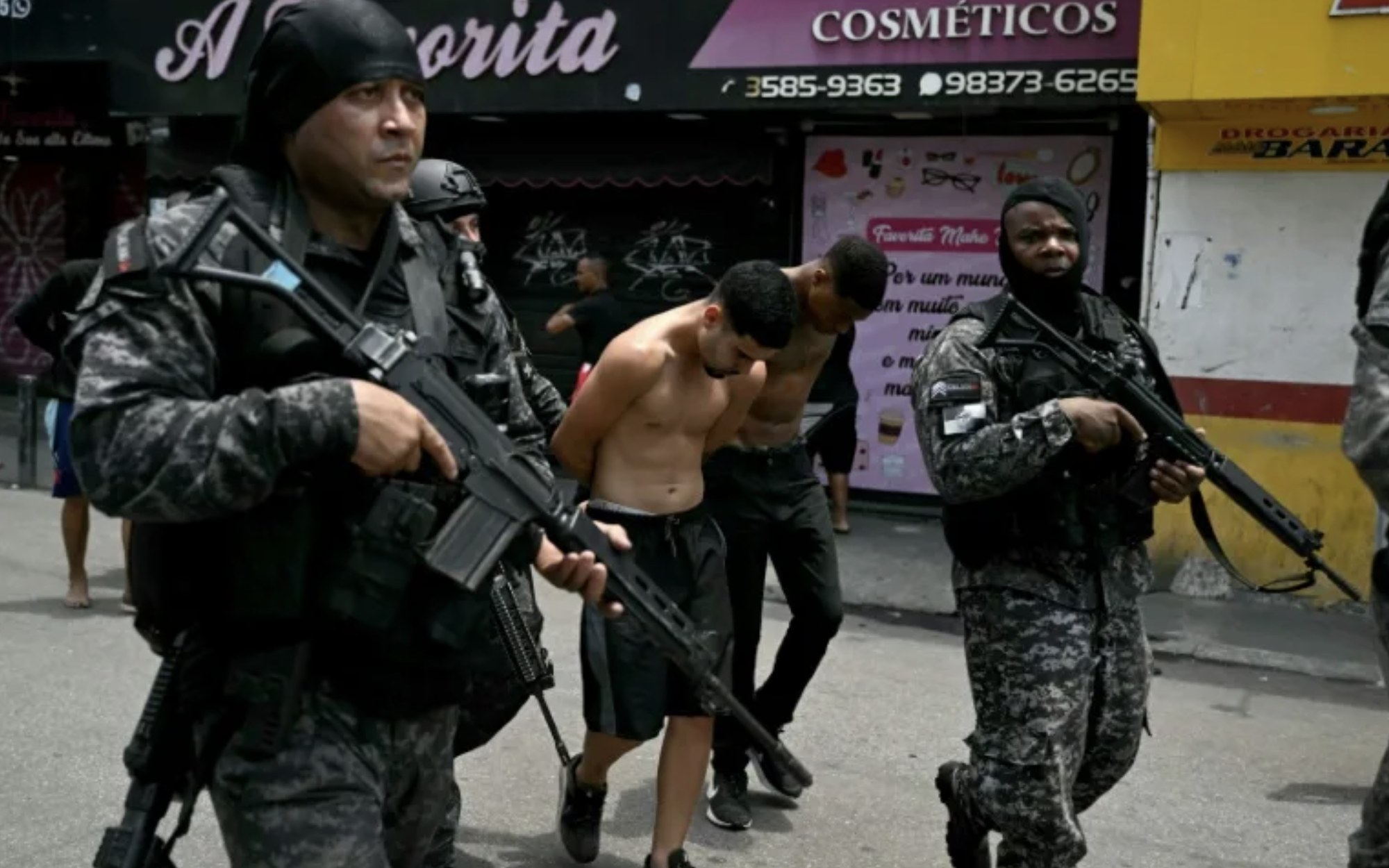
Max: 1500 characters
There are no comments yet. Be the first to comment.